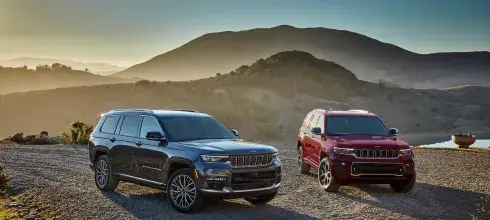Estimated reading time: 8 minutes
Car auctions are becoming a very popular way for people to buy their next car. They are held across the United States and with wages stagnating and credit rules tightening, people are turning to car auctions as a way of saving money by buying cheaper cars. People also check out car auctions when they’re looking for a classic or antique car to add to their collection.
That being said, there are some pitfalls you need to be aware of if you’re considering buying a car at an auction this year.
In this post, we’ll look at how to buy a car at auction as well as provide some useful tips. But, let’s start by introducing some of the most popular classic car auctions taking place across the US.
- Barrett-Jackson
- Gooding and Company
- Bonhams
- The Mecum Auction Company
- RM Sotheby’s
- Classic Car Auction Group
- McCormick’s Palm Springs Classic Car Auctions
- Copart Auctions
- Russo and Steele
You can also visit one of the many online car auction sites. They are a great place to go if you’re looking for a new, used, or salvage car to buy or sell.
The best online car auction sites include:
- eBay Motors
- Copart
- IAAI
- Auto Auction Mall
- ADESA
- AutoBidMaster
- Cars and Bids
- Capital Auto Auction
- A Better Bid
- ACV Auctions
- Salvage Bid
Now you know where to look for your next car, let’s give you some tips so you can bid at a car auction like a pro.
1. Do Your Research
Before you set off with your cash in hand, it helps to do some research on the auction house you’re visiting. There is bound to be a company website so take the opportunity to look through their listings.
Visit online resources such as Edmunds and Kelly Blue Book and you’ll be able to work out a car’s average market value for comparison.
2. Set Yourself a Strict Budget
It’s very easy to get caught up in the excitement of an auction and get carried away. You might end up spending too much money and regret it when you get home. Avoid such blunders by setting a realistic budget and sticking to it.
Sometimes, you’re getting a better deal if you walk away rather than buying a car for too much money. When you’re setting your budget, remember to include other factors such as auction fees, and the cost of auto transport to get your car home.
If you want to know how much SGT Auto Transport charges for its car shipping services, get your instant quote online today.
3. Take an Expert With You
At most car auctions, cars are sold as seen. You’re very limited in what you can check and you won’t be able to take the car for a test drive. In addition, there will be no warranty, guarantee, or legal recourse. It’s not unusual for sellers to be very economical with the truth. They will go to considerable lengths to hide any flaws from potential purchasers, so you have to be very careful.
To avoid the risk of buying a lemon, take a knowledgeable person with you so they can offer a better assessment of the vehicle’s condition.
4. Perform a Background Vehicle Check
Sellers can lie about their car’s history. They can also manipulate the mileage. Therefore, it’s critical to perform your own background checks. Get the VIN (Vehicle Identification Number) and check it on the National Insurance Crime Bureau website.
You’ll find various information about a car including:
- Current state of title
- Mileage
- Brand history
- Total loss history
This should all match the information you’re being given at the auction. Any contradictory information should be considered a red flag.
You should also check if the car is a theft-recovery vehicle, has been involved in any accidents, or is subject to an outstanding credit agreement.
5. Attend a Few Auctions Before You Start Bidding
Before you make your first bid, test the auction house waters by attending a few. Rookies should be spectators before making an actual bid. You’ll get an idea of how the process works and gain a better insight into the auction house itself.
6. Get There Early to Register
Arrive in plenty of time at the auction house before the auction starts. In most cases, you’ll have to register because walking in off the street and bidding is not allowed.
You might not have to register in person. There may be an option to register directly online via the auction house website. Once registered, you get a bidding number. This is what you hold up to show the auctioneer when you want to place a bid.
If you arrive nice and early, you get a chance to inspect the vehicles closely. Inspecting the cars in daylight allows you to spot any flaws or find faults you might miss in the dark.
When you arrive early, you can also assess your options better when the bidding finally starts. If you’ve spotted two or more vehicles you like, you’ve got an excellent fallback position if the bidding on your first choice gets too fierce for your budget.
7. If it Looks Bad it Probably Is
If the car you’re looking at is covered in dents and damaged paint and is looking particularly weathered, it’s likely that the seller didn’t think it was worthwhile improving its visual presentation.
However, this same tip isn’t applicable if you’re at a government-held auction. Cars are usually decommissioned vehicles and are going to look a little grubby.
8. Inspect as Much as You’re Allowed
Inspections tend to be limited, but that doesn’t mean you shouldn’t take advantage of what is allowed. If possible, check the transmission fluid. If it’s dark and grimy, this is a good sign that the car has been poorly maintained.
Ask to turn the engine on and listen to the sounds it makes. Take note of any unusual sounds and consider not placing a bid.
9. Listen to the Auctioneer
Before an auctioneer takes bids from the floor, they usually list the details of the car. These might include known major issues or mechanical faults. Pay close attention to what the auctioneer says. Then you can factor the cost of repairs into your bid when you make it.
10. Is There an Engineer's Report?
Some cars you see at an auction will have an engineer's report prominently placed on the windshield. This report indicates that the vehicle has been properly checked by a qualified engineer. The car is being sold based on the engineer's evaluation of its condition.
Now you know how to buy a car at an auction. If you’re ready to buy your car at the next auction you attend, don’t forget to make arrangements to get your purchase home. It might be too far to drive, and do you want to when there is a better option?
SGT Auto Transport provides car shipping services across the US. Take advantage of our affordable, swift, reliable, and smooth auto shipping service. You won’t regret it. Call (864) 546-5038 or use Live Chat.
FAQs
Can anyone buy a car at auction?
A regular customer can buy a car at a used auction, but sometimes the process can be complicated. It is more usual for car dealers to buy their cars at auction.
Do you need a dealer license to buy cars at an auction in Florida?
To buy cars at an auction in Florida, there is no requirement for a specific type of license. However, you do need to be a licensed motor vehicle dealer.
What are the risks of buying at an auction?
There are several risks to bear in mind if you’re thinking about buying a car at an auction.
- Overbidding
- Cars are sold “as is”
- Sellers can be tricky
- Cost of repairs







